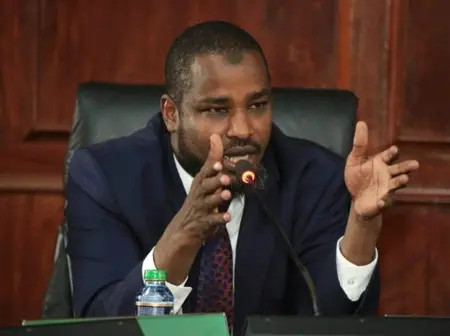The Wagalla massacre, one of the darkest chapters in Kenya’s post-independence history, unfolded on February 10, 1984.
Wajir West Member of Parliament Farah Yussuf Mohamed has protested what he terms a discriminatory and selective government plan to compensate victims of police brutality only up to 2017, saying it deliberately excludes survivors of earlier atrocities such as the 1984 Wagalla massacre.
In a s letter dated September 29, 2025, and addressed to President William Ruto with a copy sent to former Prime Minister Raila Odinga ,the legislator accused the government of perpetuating injustice against victims of some of Kenya’s gravest human rights violations.
“The selective approach to justice offends the principles of equality, fairness, non-discrimination, and inclusivity as enshrined in the Constitution,” the letter read.
“By limiting compensation to only those affected up to 2017, the government is deliberately excluding victims of earlier and more egregious violations, most notably the Wagalla massacre.”
The Wagalla massacre, one of the darkest chapters in Kenya’s post-independence history, unfolded on February 10, 1984, when the Kenya Army rounded up thousands of Somali Degodia men at the Wagalla Airstrip in Wajir under the guise of quelling a rebellion.
Survivors recount days of detention without food or water, torture, executions, and exposure to the scorching sun. Eyewitnesses estimate thousands were killed, though the official death toll has never been established.
Successive governments have pledged but failed to address the atrocity. In 1992, then-President Daniel arap Moi promised compensation. In 2015, President Uhuru Kenyatta issued a public apology. The Truth, Justice and Reconciliation Commission (TJRC) later confirmed the abuses and recommended reparations none of which have materialised.
MP Farah warned that ignoring historical injustices risks deepening inequality and eroding confidence in the government’s commitment to justice. He cautioned that victims may be forced to seek legal redress.
“If the government proceeds with a framework that excludes Wagalla victims and others, we shall have no recourse but to move to court to challenge the same on grounds of discrimination, inequality, and breach of constitutional rights,” he stated.
The MP urged the Office of the President to expand the proposed reparations framework to cover all victims of state brutality regardless of date, expressly include survivors of the Wagalla massacre, and issue a clear public commitment to a transparent, inclusive and equitable process.
He clarified that his protest was not meant to block compensation for recent victims but to ensure justice is applied uniformly.
“This protest is not in opposition to justice for any victim. It is in pursuit of equal justice for all,” he said.
Farah anchored his demands on constitutional provisions, citing Article 10 on inclusivity and protection of the marginalised, Article 27 on equality and freedom from discrimination, and Article 28 on respect for human dignity.
The protest is expected to rekindle debate over Kenya’s record of state violence in Northern Kenya.
“The demands of the victims have had little to no impact on successive governments, and this latest exclusion continues that cycle of silence and injustice,” Farah lamented.

Leave a Reply